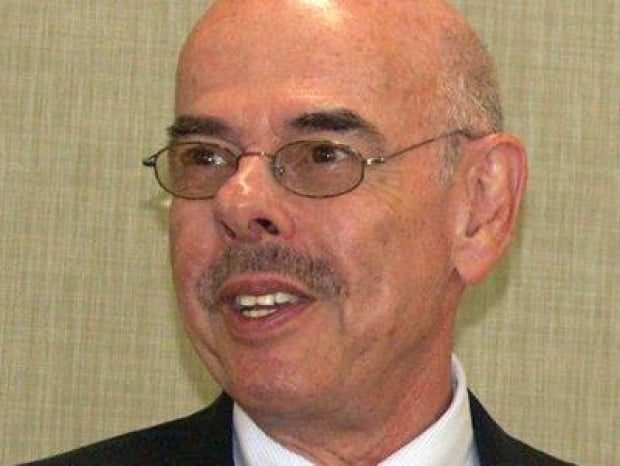Henry Waxman’s opponent, Independent Bill Bloomfield, calls congressman’s report a “partisan document produced at taxpayer expense.”
Melissa Caskey/ The Malibu Times
Coastal and environmental protection rights are being undermined more than ever by the United States House of Representatives, according to a report released by Democratic Rep. Henry Waxman.
The House, under a Republican majority, has voted to disregard environmental protections 297 times since January 2011, according to the report. Waxman, who currently represents the 30th Congressional District which includes Malibu, attributes the defiance of environmental protections to House Republicans who are unwilling to compromise in order to come up with bipartisan legislation.
Waxman banded with representatives from the Los Angeles Regional Water Control Board, the Santa Monica Bay Restoration Commission, the Surfrider Foundation and the Santa Monica Baykeeper to announce the findings at a press conference Thursday last week at Pepperdine University. The press conference occurred as Waxman prepares to defend his Congressional seat in November in the new 33rd Congressional District, which includes Malibu.
Waxman said the votes against a more protected environment have gone largely unreported by the press, which is why his office found it crucial to hold a press conference in an area known for its scenic coastline.
“Malibu is a good example of some of the most beautiful coastline in California,” Waxman said. “You can look out at the ocean and see what’s at stake.”
Several Malibu representatives attended the press conference, including Mayor Laura Rosenthal, Mayor Pro Tem Lou La Monte, City Councilmember John Sibert and City Manager Jim Thorsen.
Sibert acknowledged past lawsuits brought against Malibu for allegations of Clean Water Act violations, including one earlier this year in which the city reached a $6.6 million settlement with Santa Monica Baykeeper and the National Resources Defense Council. Baykeeper and the NRDC accused Malibu of poor pollution control in its drainage system at public beaches.
The city worked well to resolve the dispute, Sibert said.
“In general, [Malibu] is very supportive of the Clean Water Act,” Sibert said.
The Clean Water Act was passed in 1948 and established regulations on water quality and the monitoring of pollutants. In 1972, Waxman was part of the effort to overhaul the act and toughen those regulations.
“The Clean Water Act has prevented millions of gallons of untreated sewage from reaching waterways from reaching our beaches,” said Baykeeper Executive Director Liz Crosson.
In the past year and a half, the House has voted 20 times to “undermine Clean Water Act programs and protections for coastal areas and nearby waterways,” according to the report, titled “The Anti-Coastal Record of the U.S. House of Representatives: 112th Congress.” It was prepared by the minority staff of the Committee on Energy and Commerce. Waxman is the ranking member of the Committee.
One person who was not impressed with Waxman’s report was Bill Bloomfield, his opponent in the November election. Bloomfield, a former registered Republican who is running as an Independent, said the report does little to ease problems of stubborn partisanship among House members.
“Mr. Waxman’s report is just another partisan document produced at taxpayer expense which does nothing to offer the bipartisan solutions the American people are demanding on a wide range of issues, including environmental protection,” Bloomfield said in a statement.
Bloomfield, a businessman, is one of 25 founders of an organization called No Labels, which bills itself as a nonpartisan group that has proposed 12 ways to “make Congress work.” The group has recommended withholding pay from members of Congress if they do not pass budgets and bills on time, requiring Democrats and Republicans to sit next to each other during meetings and changing procedural rules to allow up or down votes on presidential appointments and filibuster reforms.
The press conference was in keeping with a key theme of Waxman’s re-election campaign thus far, which is that Republicans are to blame for partisan gridlock in Washington, D.C.
That message could be effective in the new 33rd District, where out of a total of 434,903 registered voters, 44 percent are registered Democrats, while only 28 percent are registered Republicans, according to the California Secretary of State’s office.

